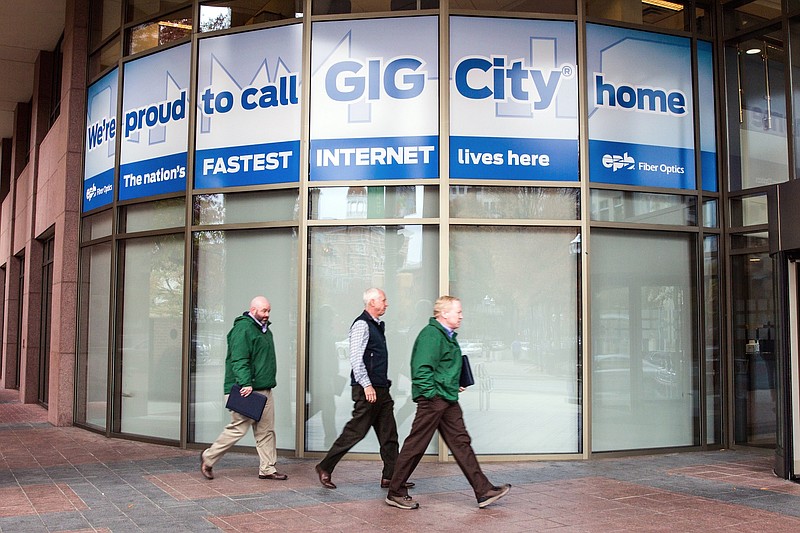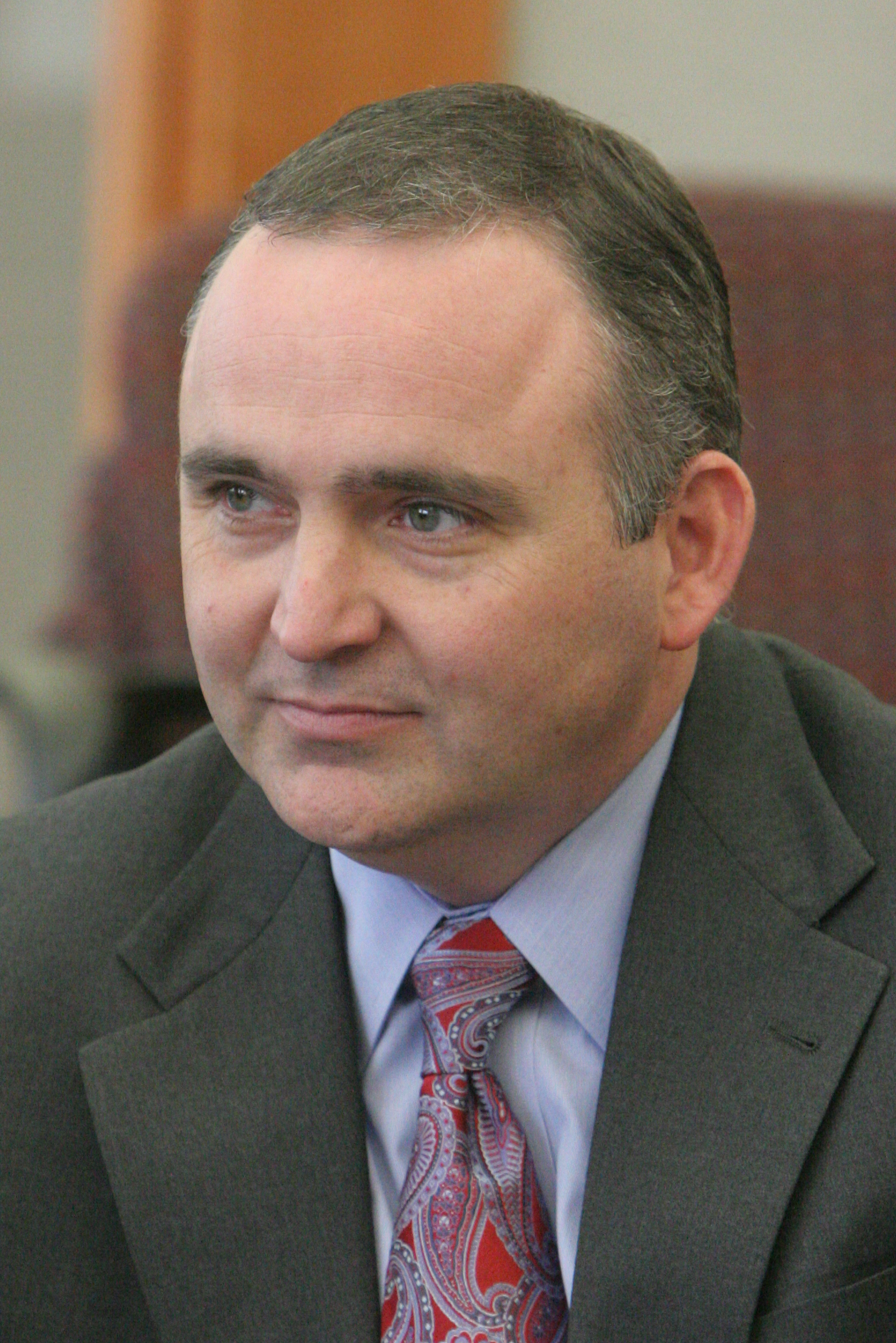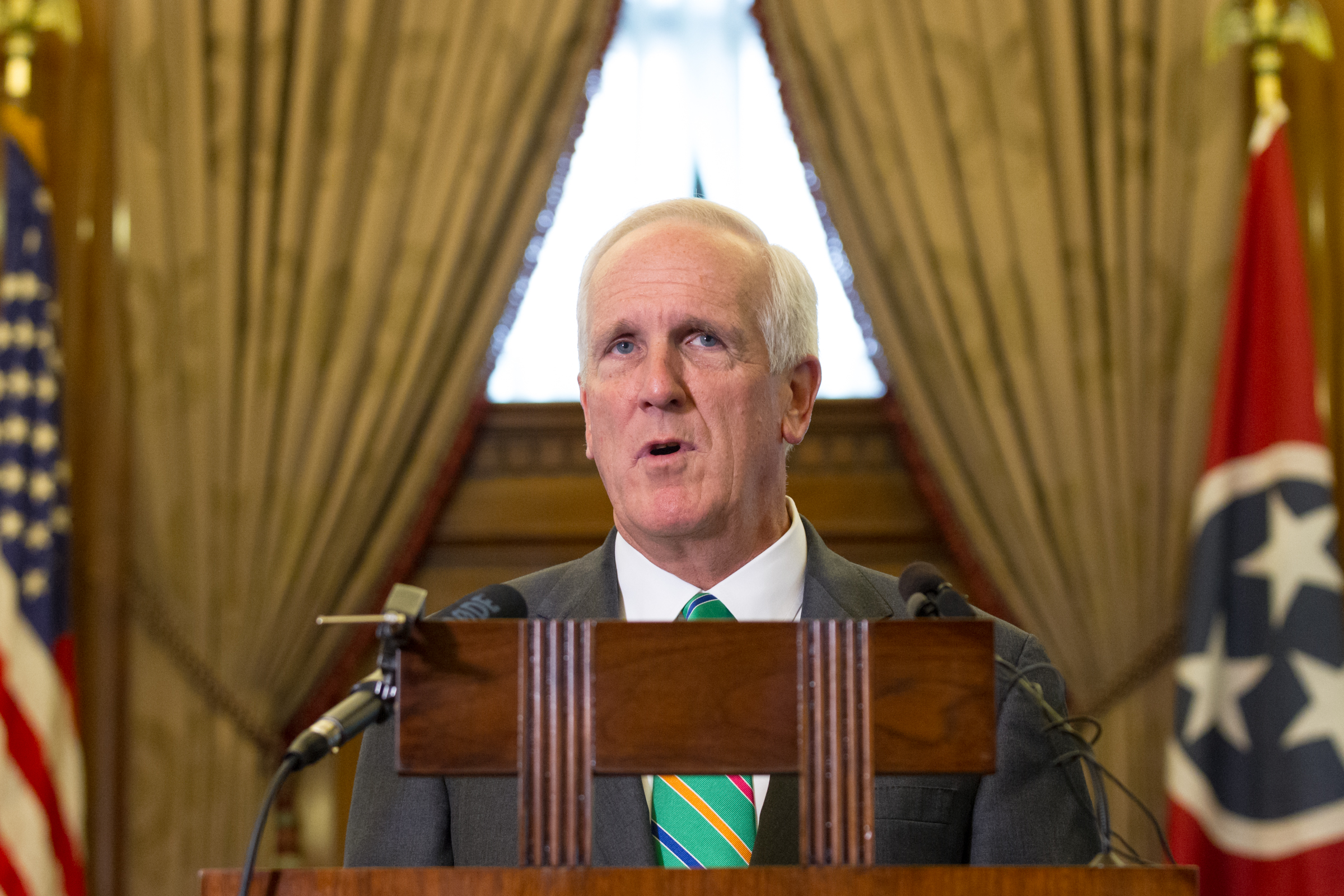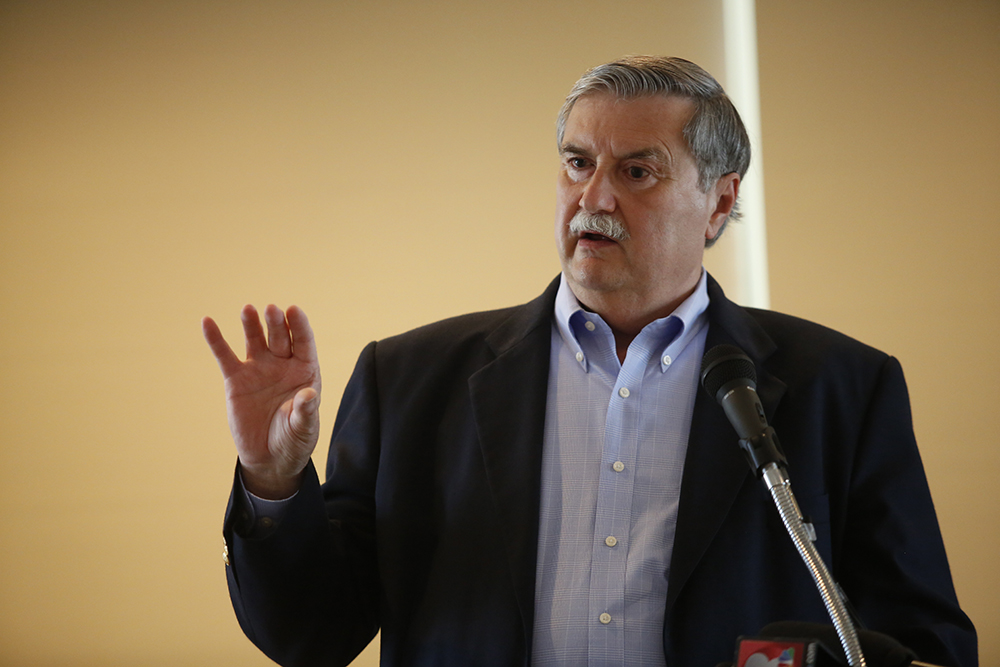Interactive EPB map
View an interactive map of EPB residential broadband connections in the Chattanooga area.
Fast facts
Connected Tennessee estimates that at least 422,000 households across Tennessee don't have access to landline Internet speeds that meet the FCC definition of high speed broadband, 25 mbps download/3 mbps upload. Another 1.6 million Tennessee households are served by only one provider.
Other Legislature news
* Despite hundreds of supporters at Capitol, Insure Tennessee dies again * School voucher bill passes in Tennessee House panel * Public hospitals across Tennessee oppose bill restricting closed meetings * Gov. Haslam adds money for teacher insurance to budget proposal * Court clerks could settle for late fees under proposed bill
People like Joyce Coltrin, who owns a large wholesale nursery in south Bradley County, will have to wait to get access to basic Internet even in these fast-paced days of post-dial-up connections.
Due to an apparent lack of support from Tennessee lawmakers, a bill proposed in the General Assembly to allow Chattanooga's EPB and other municipally owned utilities to offer high-speed Internet outside their existing service areas is on hold until next year.
Some 800 families in south Bradley County would have benefited from the expansion, according to Sen. Todd Gardenhire, R-Chattanooga, who represents the area.
"I'm disappointed we weren't able to get it passed this year," said Ken Webb, president and CEO of Cleveland Utilities and a strong supporter of EPB's proposed expansion. "I just feel like the entire community would have benefited from it."
Job postings and application procedures, grade-school assignments, business support services, preventive health measures -- all reside mainly online; a mere click of a button away for most people. But in rural areas, where profit margins are challenging for private providers due to fewer potential customers, only about half of the population statewide has access to broadband service.
So local lawmakers as well as the Federal Communications Commission began wrangling with a 15-year-old state restriction on where municipally owned service providers can expand their networks.
Rep. Kevin Brooks, R-Cleveland, sponsored a bill that essentially mirrored a February ruling by the FCC which would have allowed municipal providers to expand into unserved areas when asked by a public distributor in that area.
Gardenhire threw his support behind the Senate version. But both were put on hold ahead of their scheduled votes Tuesday.
"Next year, I hope the needs of the hundreds of thousands of Tennesseans with little or no broadband service will override the vested interests of the legacy carriers who refuse to serve them while lobbying to prevent community-based providers from meeting the needs of the people in our state," said Sen. Janice Bowling, R-Tullahoma, who sponsored the bill in the Senate.
Rep. Dan Howell, R-Georgetown, co-sponsor of the House version, said that while the "pause button" has been hit, the bill is "still very much alive."
"We simply rolled it back to January 2016. The assumption is there is not enough support for the bill in the Senate at this time," Howell added, referring to conversations he had heard about but did not specifically cite.
The proposed expansion was criticized by service providers including Comcast and AT&T as well as state officials and limited-government proponents.
On March 20, Attorney General Herbert Slatery filed a lawsuit calling for a judge to weigh in on the FCC's ruling, which some are calling a states' rights issue.
"If you allow municipalities to expand their networks beyond their footprints, it is very similar to Obamacare where you allow government to step in and invest untold amounts of money into something that already exists while stifling further private investment and threatening further private sector job creation opportunities," said Bruce Mottern, manager of state government affairs for TDS Telecom in Kentucky and Tennessee.
Private telephone, cable TV and other telecommunication companies object to having to compete with local governments in providing upgraded Internet service at speeds many claim are still not needed or likely to be used by most people.
EPB offers gigabit-per-second service, many times faster than standard broadband.
AT&T Spokesman Daniel Hayes previously has said while the company is not opposed to municipal broadband networks, they "should be limited to locations where no private-sector broadband service is available and is not likely to be available in a reasonable time frame."
Brooks had already scaled his bill back before withdrawing it Tuesday. The amended bill would have "allow[ed] ... service to unserved areas or areas that will not be served in the very near future."
Before bringing the bill back, Brooks said he plans to work on two issues: who would determine where broadband providers could expand, and how to prioritize getting broadband to those who need it most. Decision-making power might be best handled by the Tennessee Regulatory Authority administrative law judges, he said, who could look at petitions for service and see whether and what level of service already is available.
"If it's a place where there's no service or none in the immediate future, that's a pretty good criteria," he said. "If this is really about giving Tennesseans access to broadband, then the fact that there are Tennesseans who have not just bad service but no service, we've got to fix that."
However, Brooks said he's not in favor of waving any kind of legislative stick at private-sector providers to fill in those gaps.
"We shouldn't be telling private enterprise what to do."
Harold DePriest, EPB president and CEO, said EPB is more likely to expand its services to rural areas than are private telecoms because EPB doesn't have to make a profit and isn't trying to protect an incumbent business in such areas.
"Allowing investor-driven entities headquartered in other states to pick which Tennessee communities win and which lose when it comes to this critical infrastructure undermines the fundamental principle of local control," he said.
Webb said the only thing to do at this point is "to continue to encourage our state legislators to pass the bill."
Staff writers Jennifer Bardoner, Judy Walton and Andy Sher and correspondent Paul Leach contributed to this story.
Read more
* Government utilities charge that private utilities are working to kill broadband bill * Tennessee attorney general fights ruling allowing EPB to extend high-speed Internet footprint * Tennessee trying to overturn FCC ruling which allows EPB to expand high-speed Internet * FCC issues order to allow EPB to expand Gig service to outlying areas * Farm Bureau backs EPB expansions * Governor Haslam may appeal FCC ruling that allows EPB to expand gig * Broadband battle: FCC, Legislature square off over EPB bid to expand Gig territory * Obama praises Chattanooga as 'a tornado of innovation'



